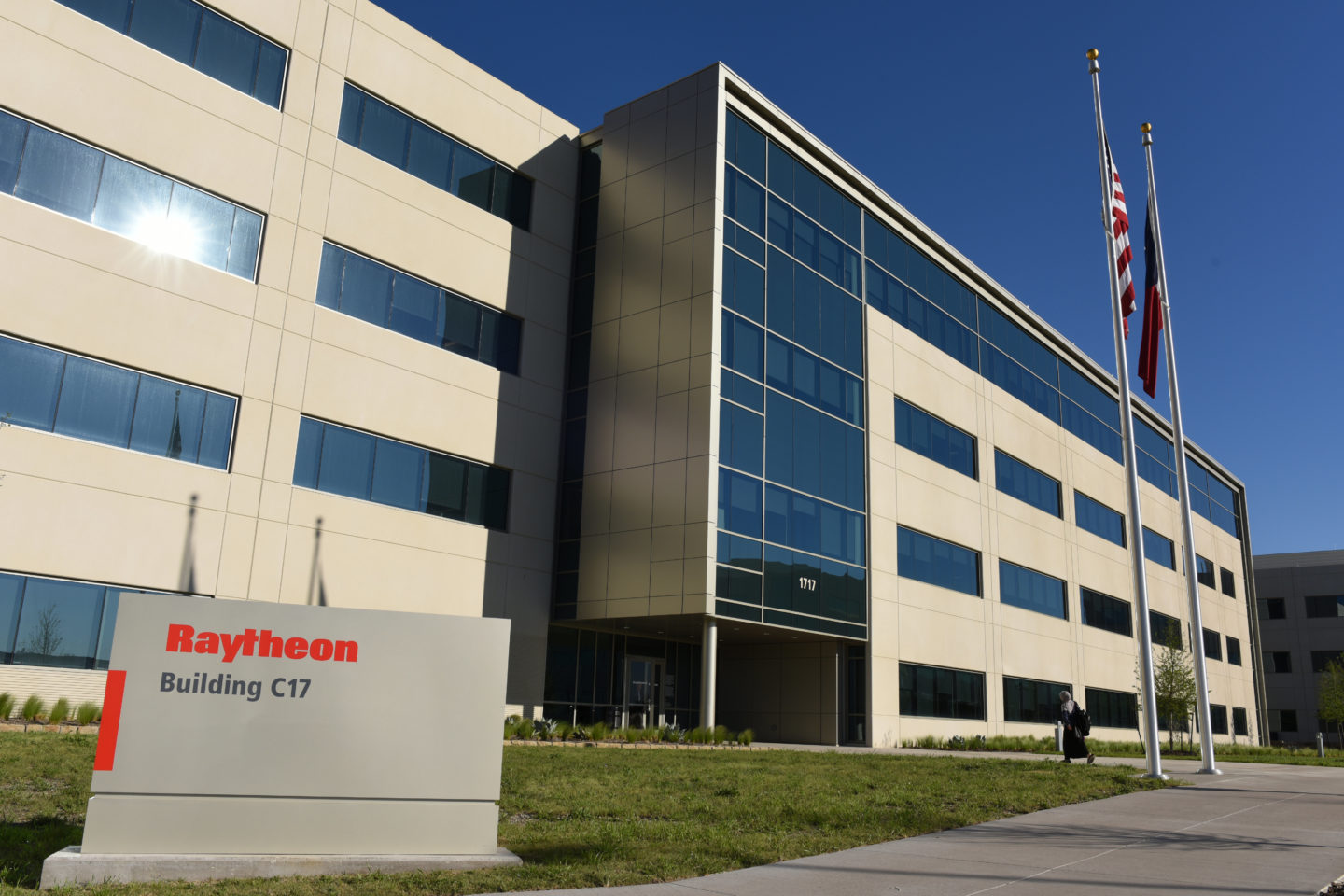A US arms firm in Fife linked to war crimes in Yemen has enjoyed at least 57 private meetings with the UK Government.
Raytheon has wined and dined MPs and even treated a minister at the MoD to a slap up Burns Supper with haggis, neeps and whisky.
The multinational also met privately with Philip Hammond MP, Chancellor of the Exchequer, when he was foreign secretary, after claims of war crimes in Yemen emerged.
The scale of Raytheon’s lobbying has been revealed by Campaign Against Arms Trade (CAAT) as UK ministers continue to refuse to suspend arms sales to Saudi Arabia.
Raytheon produces Paveway IV smart bombs at its factory in Glenrothes, which have been supplied to Saudi Arabia and used in Yemen’s war.
The Saudis have been accused of dozens of war crimes putting huge pressure on the government to suspend arms sales to its ally.
But the government has so far refused to stop selling bombs prompting widespread criticism and allegations of UK complicity in war crimes.
Ministers have now been accused of kowtowing to corporate interests after intense lobbying by Raytheon.
CAAT said that the US multinational has enjoyed 74 hours of meetings with the MoD since the Tories came to power in 2010.
The company also had six meetings with the Prime Minister’s Office lasting 10 hours.
Raytheon met with Philip Hammond last September before he was appointed as Chancellor of the Exchequer.
While Foreign Secretary, Hammond refused to suspend arms sales to the Saudis despite pleas by organisations such as Human Rights Watch, Amnesty International and Save The Children.
The Tory MP treated to a Burns Supper in January this year was Mark Lancaster MP, Parliamentary Under Secretary of State for Defence Personnel and Veterans.
Raytheon also wined and dined Tory MP Philip Dunne, when he was Minister for Defence Procurement.
During 26 of the 57 meetings Raytheon had with the government, officials from the Defence and Security Organisation (DSO) were present.
The DSO is a body that promotes arms exports.
Three senior MoD officials have ended up working at Raytheon, CAAT added.
Andrew Smith of CAAT said: “Raytheon is complicit in the destruction of Yemen, yet it enjoys the support of the machinery of government. It has direct access to government ministers and civil servants and is in a powerful position to influence policy.
“Whitehall is meant to be regulating arms companies like Raytheon, not promoting them and inviting them into the corridors of power.”
“Our data exposes the extent of the intimate and compromising relationship between arms companies like Raytheon and government – from the thousands of hours of meetings, to the revolving door between companies, the military and government, to the industry bodies embedded within government itself /within departments.
“The arms industry has inserted itself into the very heart and machinery of government, allowing it totally disproportionate access and influence over vital areas, warping public policy and harming us all.”
“As long as arms companies are helping to shape foreign policy then it will always focus on arms exports, militarism and support for the brutal dictatorships that are buying UK weapons.”
Ross Greer MSP, External Affairs spokesperson for the Scottish Greens, said: “It looks like arms firm Raytheon have their own desk at the defence department, given how closely involved they are. This is exactly the kind of corporate influence which damages the public’s trust in Westminster .
“Whether it’s wining and dining or the revolving door for those at the top, the relationship between this UK Government department and a maker of lethal weapons has clearly overstepped the mark. It all underlines the need to keep up the pressure and end the arms trade.”
Last year the UK Government approved more than £3bn worth of arms sales to the Saudis.
The Ferret and Sunday Mail revealed in August that a code on bomb fragments found at the scene of an alleged war crime in Yemen linked to Raytheon.
Earlier this year the UN said there had been 110 “clear violations of international law by the Saudi-led coalition raising questions over the legality of UK arms sales to Saudi Arabia.
Refugee camps, schools, hospitals and markets had been targeted by airstrikes as well as weddings, the UN said.
The Saudis have strongly denied targeting civilians and their opponents, the Houthis, have also been accused of war crimes.
Amnesty and Human Rights Watch claim that, since the Saudi-led coalition entered the conflict in March 2015, some 3,799 civilians have been killed and more than 6,700 wounded
Last week it emerged that the UK Government blocked an attempt by the European Union to establish an independent investigation into war crimes in Yemen.
The UK has also refused to call for an independent UN-led inquiry into war crimes.
A government spokesperson said: “Defence ministers meet with defence-related companies for a range of reasons, from equipment procurement to encouraging them to support our veterans and reservists in terms of employment.
“The UK Government takes its arms export responsibilities very seriously and operates one of the most robust arms export control regimes in the world.”
Dunne, Lancaster and Raytheon all declined to comment.
A version of this story was published by the Sunday Mail on 2nd October 2016.














